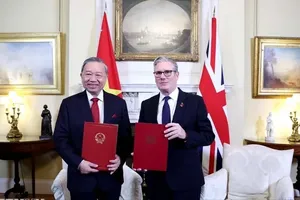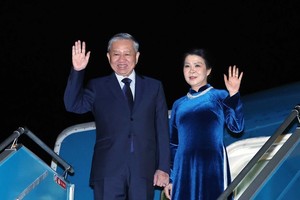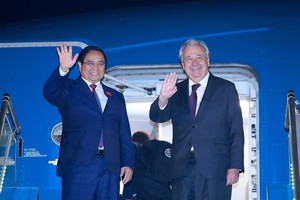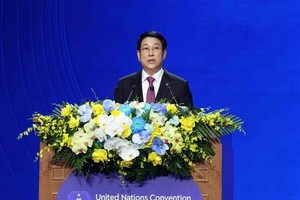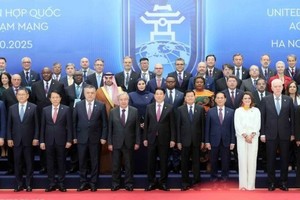WASHINGTON, May 15, 2011 (AFP) - The International Monetary Fund was left reeling Saturday as its chief Dominique Strauss-Kahn was set to be charged with sexual assault and attempted rape, at one of the most critical moments in the history of the world body.
The scandal could prove doubly embarrassing for the IMF, one of the pillars of the world financial system, as it has already forgiven its flamboyant leader for a past transgression.
Strauss-Kahn was removed from an Air France jet minutes before its scheduled departure from John F. Kennedy International Airport Saturday amid allegations of a sexual assault on a New York hotel maid, officials said.

The allegations could prove grounds for the IMF to dismiss Strauss-Kahn from his post. But none of those close to Strauss-Kahn could tell AFP late Saturday whether the fund managing director acknowledged or denied the accusations.
When asked by AFP, a spokesman for the fund and Strauss-Kahn's lawyer both said they had no information about the alleged events.
The IMF is currently confronting one of the most critical phases in its history, as it grapples with the fallout of the economic crisis sweeping the euro zone.
A fund delegation began its work in Athens Tuesday to discuss with the European Commission and European Central Bank conditions for disbursing the payment of the fifth tranche of a loan given Greece in May 2010.
The 30-billion-euro (42.3-billion-dollar) loan is considered to be the largest ever granted by the institution.
The IMF also needs to give the green light to a similar loan to Portugal.
European finance ministers were to meet in Brussels on Monday for talks which Strauss-Kahn had been due to attend.
Finally, the IMF board of directors was scheduled to consider Monday payment of the second and third tranches of a 22.5-billion-euro (31.7-billion-dollar) loan granted in December to Ireland.
But it is likely that this meeting will also review the personal behavior of the managing director, who had been liked and appreciated by the vast majority of IMF employees.
The institution already had to deal with another difficult situation involving Strauss-Kahn, who admitted having a relationship with a subordinate, Hungarian economist Piroska Nagy, in January 2008.
The relationship was discovered by Nagy's husband, and the IMF had hired a law firm in Washington to conduct an investigation. But the probe concluded that the relationship had been consensual and had not resulted in favoritism.
In October 2008, the IMF board decided to keep Strauss-Kahn in his current job while criticizing him for a lack of good judgment.
The IMF has no obligation to make a decision in the immediate future about Strauss-Kahn and can function without its boss while it is learning more about the case.
The first deputy managing director, John Lipsky of the United States, could run the institution in the interim.
The fund has a code of conduct, which requires that its international staff "observe the highest standards of ethical conduct, consistent with the values of integrity, impartiality and discretion."
It further states that failure to observe the IMF's rules and regulations may be grounds for disciplinary action or dismissal "in the case of serious violations."
In any case, Strauss-Kahn's employment contract stipulates that if he is removed by the board, he will be paid a severance package equaling 60 percent of his annual salary.
